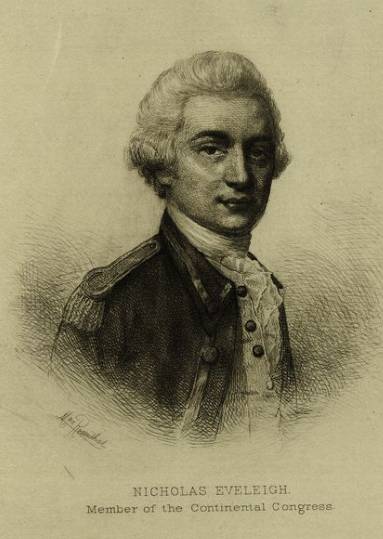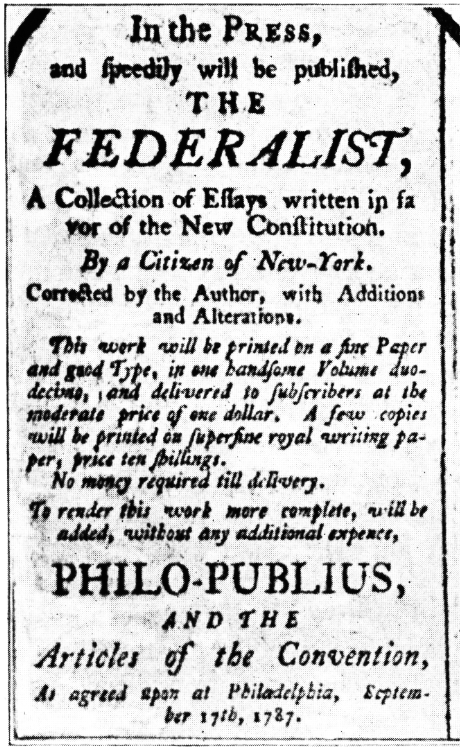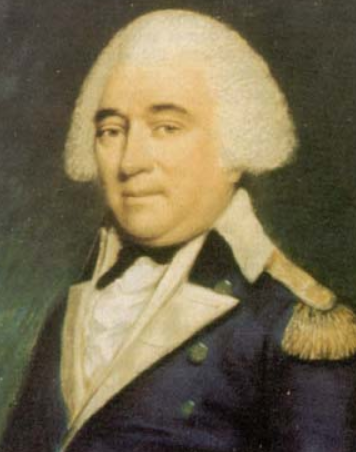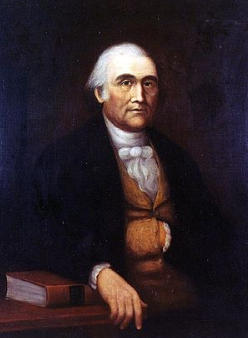Choosing a Comptroller - The Death of Nicholas Eveleigh
When Comptroller Nicholas Eveleigh died in April of 1791, it was the first time the United States Government had an important position available.
Of course, many candidates vied for this position. The competition led to a bit of intrigue between Secretary of Treasury between Alexander Hamilton and Secretary of State Thomas Jefferson.
The office of Comptroller was the second highest rank in the Treasury Department and was responsible for overseeing all financial transactions in an effort to thwart corruption.
Oliver Wolcott, Jr
Oliver Wolcott, Jr had sought the job of Comptroller at the outset of the Washington Administration.
Despite his grand qualifications, Wolcott (not to be confused with his father, Oliver Wolcott, Sr) was only offered the position of Auditor. Although this was the third highest office in the Treasury Department, Wolcott viewed it as a thankless task which was below his abilities.
Jeremiah Wadsworth and Oliver Ellsworth advised Wolcott to take the position but it was only after a meeting with Alexander Hamilton himself that he accepted the office. Still only 29, Wolcott was assured that, when the opportunity arose, he would receive a promotion.
Office of the Comptroller
Two years later Nicholas Eveleigh, who had first received the office of Comptroller, was dead.
On the very day that Eveleigh passed away, Hamilton kept his promise and wrote to President Washington (who was away touring the South) suggesting Wolcott as the best man for the job.
Additionally, he mentioned another candidate...Tench Coxe.
Tench Coxe
Tench Coxe was Assistant Secretary of the Treasury and had been assisting Hamilton with studying the improvement of manufactures.
One of the foremost economic minds in the United States, Coxe had mentioned to Hamilton that he was interested in the opening which is why his name was mentioned to Washington.
It seems clear, however, that Hamilton let Coxe know he was favoring Wolcott.
Coxe, in turn, asked Thomas Jefferson to submit his name to the President, which he did.
Pointing Fingers
In the end, Oliver Wolcott, Jr was chosen by Washington as the second Comptroller of the United States (and later would replace Hamilton as the second Secretary of the Treasury).
Tench Coxe would work in the private sector, as a tax collector and become one of Jefferson’s supporters in the Democratic-Republican Party.
More immediately, Alexander Hamilton claimed that Jefferson had slyly attempted to install one of his own men at the highest levels of the Treasury Department, a slander which influenced the split within Washington’s Cabinet.
The truth is, Jefferson’s letter to Washington mentioned that Coxe wanted the job, but little else.
In actuality, Jefferson recommended a different person...Declaration of Independence signer Thomas Heyward, Jr.
Wolcott and Coxe were not the only men angling for the job as Comptroller?
Here are just a few of the Founders who also sought this position:
John Kean Accounts for the United States
Uriah Forrest Sells Washington to Washington
Timothy Pickering Serves at the Pleasure of the President
Tench Coxe is one of the most impressive American Founders.
It is fairly hard to find and expensive online, but ‘Tench Coxe and the Early Republic’ is an extraordinary look at the life of the first American Economist.
Pick up a copy through the Amazon affiliate link below (you’ll support this site, but don’t worry, Amazon pays me while your price stays the same).
Want to get fun American Revolution articles straight to your inbox every morning?
Smart!
Subscribe to my email list here.
You can also support this site on Patreon by clicking here.






